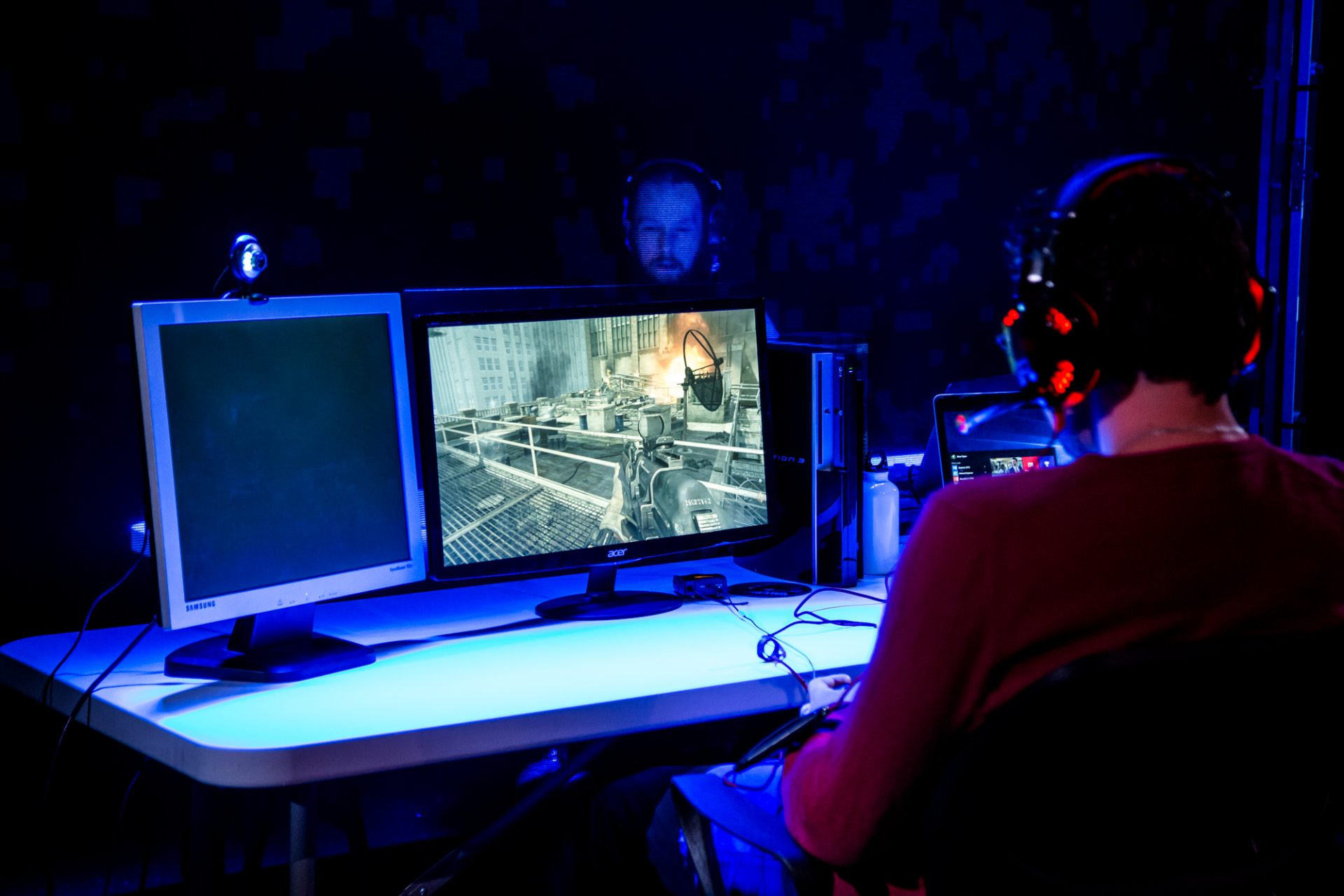When they first premiered at the Edinburgh Festival Fringe in 2017 and 2019 respectively, Javaad Alipoor’s plays The Brothers Are But Believers and Rich Kids: A History of Shopping Malls in Tehran were commended for their bold and visually overwhelming explorations of the dark side of social media. After a London run of Rich Kids was cancelled due to COVID-19, the Javaad Alipoor Company decided to take both shows online, depending on the very platforms they scrutinise in each production.
As in the live production, Rich Kids relies heavily on Instagram to delivers its message about digital culture, consumerism, and climate change. Alternating between a YouTube live stream and the visual media platform, Alipoor and fellow performer Peyvand Sadeghian reflect on how the cause of a car accident, which killed two young Iranian socialites, can be traced as far back as the colonisation of the Americas. Taking advantage of the Instagram formula, Alipoor and Sadeghian question our understanding of time and history by telling the story in reverse: starting with the fatal accident, they move “backwards over time” – providing us with snapshots of the truth concealed by the seemingly perfect lives of these rich kids on Instagram, who presented their lives as filled with wealth and luxury.
The main narrative is broken up by Instagram Live feeds featuring monologues about mankind’s impact on the geological makeup of our planet – not only in terms of pollution but the drop in C02 levels that can be attributed to the genocide of 50 million Indigenous Americans. These hard-hitting truths are offset by the surreal visual filters applied by Alipoor and Sadeghian.
While the two facets of Rich Kids are engrossing, the online show does not have the same impact as the original production. Lucy Osborne’s hypnotic original set design is reduced to a YouTube video, which is forgotten when attention is given to the Instagram Live videos. There are a number of synchronizing issues as well, with these feeds starting prematurely and distracting viewers. Occasionally, Alipoor and Sadeghian forget to repeat their instruction of “scroll down” the page feed, making it very easy to get lost.
It’s hard to see how audiences could enjoy the performance if they didn’t have Instagram or were understandably unwilling to create an account for the sake of a 70-minute show. Too much is expected of the audience in order for the show’s full message to be taken away, and the number of distractions present (including notifications from other accounts) makes it difficult for Alipoor and Sadeghian to succeed.
Though social media once again plays an important role in the plot, thankfully it is not as integral to the structure of The Brothers Are But Believers. Performed on the same staging as it would during an in-person performance, the live stream feels more like a “normal” theatre event, albeit with a WhatsApp group that viewers are encouraged to join to get a more immersive experience.
Focusing on the prevalence of extremist media and propaganda online, The Brothers Are But Believers looks at “men, politics, and the internet”. More accurately, it looks at how three young men – two British Muslims called Atif and Marwan, and an Orange County gamer called Ethan – are connected by a single video of extremist violence. Though each has a different reaction to the video’s content, their stories tell a bigger story as to how easily some can be influenced, how anonymity and the need to be popular can incite violence, and also how easily the truth can be distorted to suit one person or organisation’s agenda.
The metafictional aspect of this play is more prominent, with Alipoor frequently referring to the research that led to him writing this play. It is both remarkable and terrifying how easily accessible the information shared with us by Alipoor is online – so much so that to show us some of the content readily available on 4chan, a discussion board site that plays a key role in the story, would breach the Terrorist Act. As with Rich Kids, the characters come to life in the WhatsApp groups created for the performance. Alipoor also encourages the audience to interact as well, asking us questions including what the worst thing on the internet we’ve seen. Very quickly, the chat content becomes distasteful or violent, and it’s unsettling how visceral your reaction is to the hate spewed by Ethan or seeing a fictional ISIS recruit organise meetings with one of these impressionable young men. Though reflective of very real discussions online, unfortunately the WhatsApp group is more as a distraction than anything else – perhaps again due to a synchronizing issue – and detracts from what Alipoor is telling us.
The biggest issue with this live production, however, is how the live stream is filmed. The off-centre placement of the camera means that the screen sitting above Alipoor’s head, which shows a reel of different footage and images related to the story, is often undecipherable. Occasionally the camera focuses in on the screen, however the impact of their relentless reel of footage Is lost. Also dampened by the recording are the lighting effects used to distinguish between Atif and Marwan’s narratives, which is not as obvious on screen. It’s a real shame, especially given the incredible amount of work Alipoor has done to create a coherent narrative.
Even though the impactful nature of both of Alipoor’s plays has been dampened by the transition to online, the thoroughness of the research behind each narrative still shines through. Even faced with legal action by the parents of the Tehranens at the centre of Rich Kids, the Javaad Alipoor Company’s determination to voice these hard truths is what makes the theatre company so exciting and worth seeing in the flesh.
